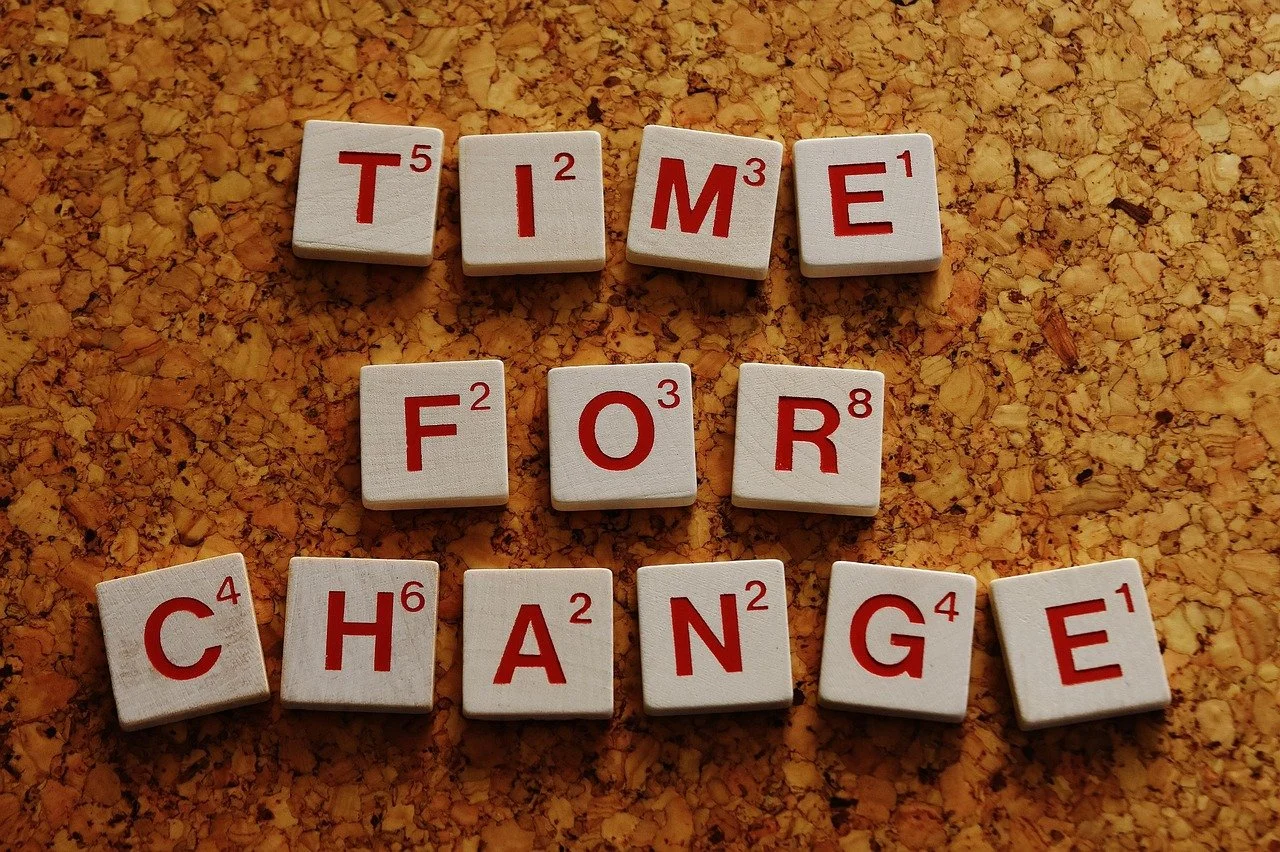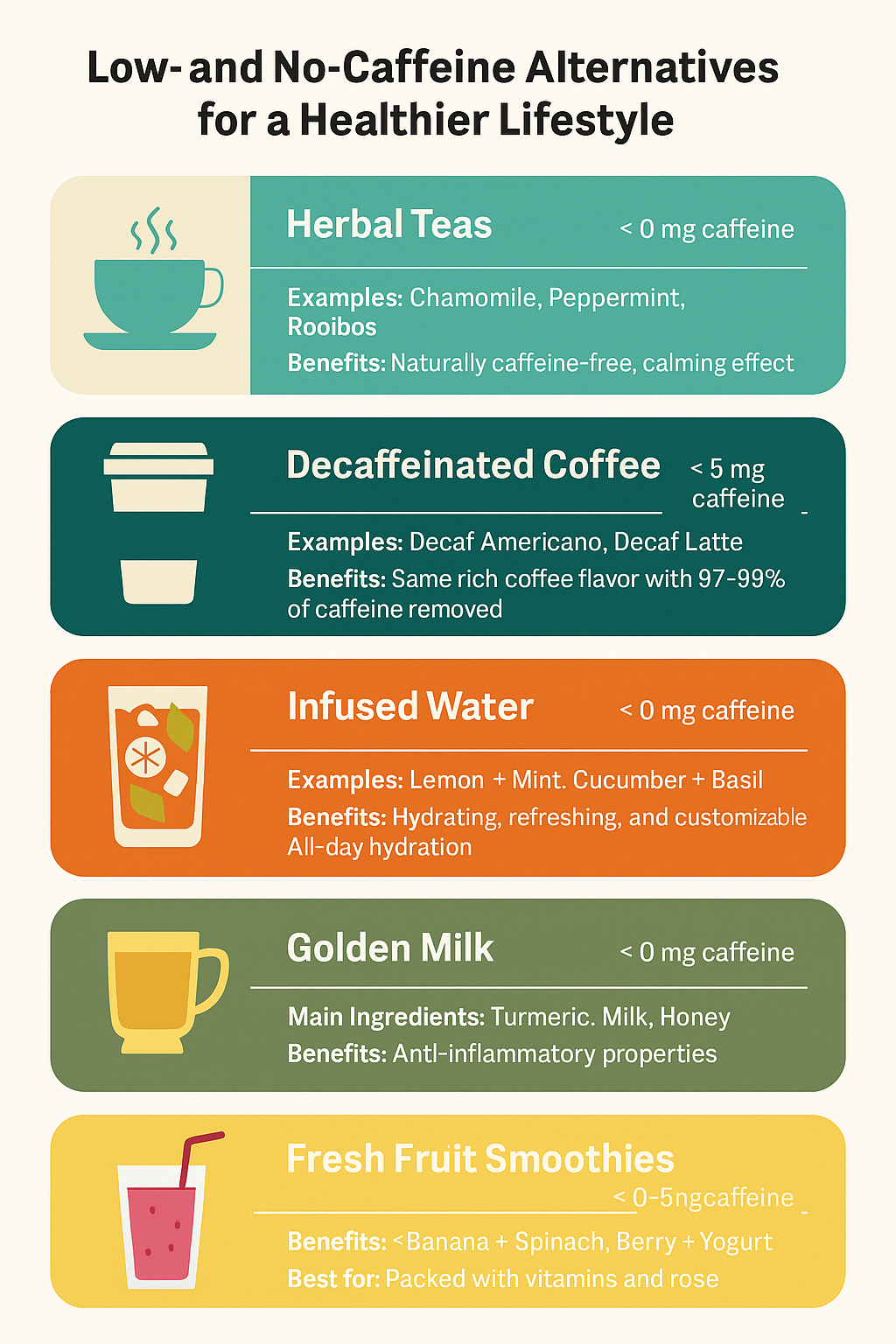Low- and No-Caffeine Alternatives for a Healthier Lifestyle
Written by Eunseo Whaong
Why Choose Low- or No-Caffeine Drinks?
While caffeine in moderation can boost alertness, excessive intake can lead to sleep disturbances, increased heart rate, anxiety, and even dependency. For teens, whose bodies are still developing, limiting caffeine is especially important. Low- or no-caffeine beverages allow you to stay refreshed without the potential drawbacks of high-caffeine products.
1. Herbal Teas (0 mg caffeine)
Examples: Chamomile, Peppermint, Rooibos
Benefits: Naturally caffeine-free, calming effect, supports digestion and relaxation.
Best For: Evening wind-down or stress relief.
2. Decaffeinated Coffee (<5 mg caffeine)
Examples: Decaf Americano, Decaf Latte
Benefits: Same rich coffee flavor with 97–99% of caffeine removed.
Best For: Coffee lovers who want to enjoy the taste without the jittery effect.
3. Infused Water (0 mg caffeine)
Examples: Lemon + Mint, Cucumber + Basil
Benefits: Hydrating, refreshing, and customizable with fruits or herbs.
Best For: All-day hydration and a light, crisp taste.
4. Golden Milk (0 mg caffeine)
Main Ingredients: Turmeric, Milk (or plant-based milk), Honey
Benefits: Anti-inflammatory properties, immune system support, naturally warming.
Best For: Cold weather comfort drink.
5. Fresh Fruit Smoothies (0–5 mg caffeine)
Examples: Banana + Spinach, Berry + Yogurt
Benefits: Packed with vitamins, minerals, and fiber.
Best For: Breakfast or post-workout replenishment.
Tips for Transitioning Away from High-Caffeine Drinks
Gradual Reduction: Replace one caffeinated drink per day with a low-caffeine alternative.
Hydration First: Drink water before reaching for coffee or energy drinks.
Mind the Sugar: Low-caffeine doesn’t always mean healthy—check sugar content.
Conclusion
Switching to low- or no-caffeine beverages doesn’t mean giving up on taste or variety. With the right choices, you can enjoy flavorful, refreshing drinks that support your health and energy levels naturally.

